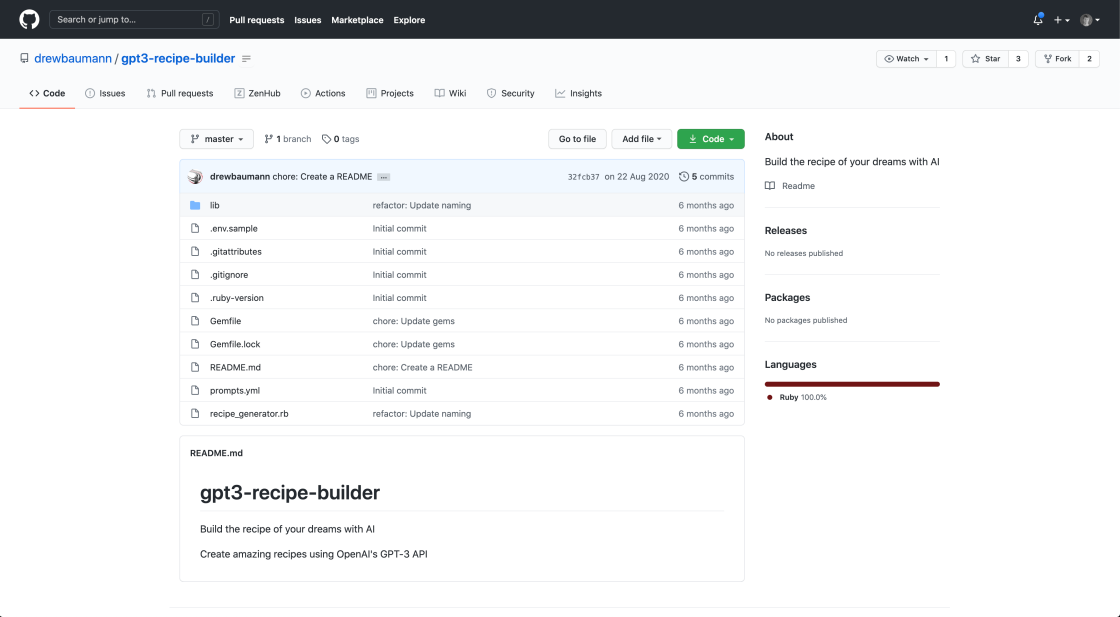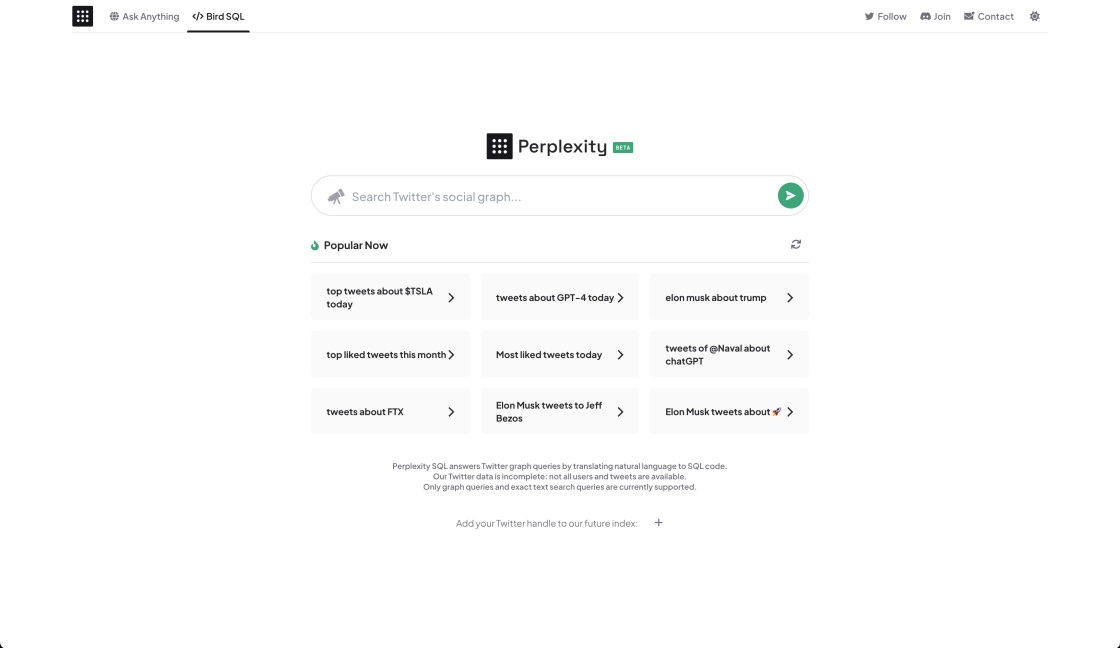

Shipyy helps developers/engineers build internal tools(in 5 mins) for business, product, operations and other teams using existing SQL queries, python/JS scripts, rest api endpoints. Ensuring production database safely using audit logs, roles and permissions.
Information management for the things you own: home, auto, and more.
Amazon Textract is a powerful cloud-based machine learning service that simplifies the process of extracting text and data from documents. With Textract, businesses can easily automate time-consuming tasks such as data entry, document classification, and content analysis. By leveraging advanced ML algorithms, Textract accurately identifies and extracts information from a wide range of documents, including contracts, forms, and invoices. With its intuitive interface and scalable infrastructure, Textract provides businesses with a cost-effective solution for document processing, enabling them to gain valuable insights and make better-informed decisions.
Google Cloud Dataflow is a robust platform that has revolutionized the way data pipelines are created. It provides a simple and efficient solution for processing large datasets without compromising on quality. With its unique features, Google Cloud Dataflow has become a top choice for businesses and organizations that deal with massive amounts of data. This cloud-based service enables developers to create, deploy, and manage data pipelines with ease, providing them with the flexibility to scale up or down as needed. In this article, we will explore the benefits and features of Google Cloud Dataflow and how it can help organizations streamline their data processing tasks.
DB Sensei is a powerful database query generator and optimization tool that uses artificial intelligence to help database professionals, developers, and students improve their skills and get faster results. With its intuitive and user-friendly interface, users can import a database structure and quickly create complex SQL queries with ease. Whether you're an experienced database professional or just starting out, DB Sensei is the perfect tool to help you streamline your workflow and optimize your database performance.
Akkio is a revolutionary new tool that allows users to quickly and easily generate datasets with the same ease as having a conversation. Powered by ChatGPT, Akkio gives users the ability to interact with their data in a conversational language, allowing them to prompt their dataset in natural language and receive an immediate response. With Akkio, users can quickly create datasets for machine learning models that are tailored to their specific needs.

Jasper
AI-Powered Customer Support

Copy.ai
Copy.ai: Write better marketing copy and content with AI

GPT-3 Recipe Builder
Generating Cooking Recipes with OpenAI's GPT-3 and Ruby

PhotoRoom
PhotoRoom - Remove Background and Create Product Pictures

Perplexity AI
Building Smarter AI

Perplexity AI: Bird SQL
A Twitter search interface that is powered by Perplexity’s structured search engine

Dreamstudio AI
Your Personal AI Artist

Flowrite
Flowrite - Supercharge your daily communication
ELK Stack is an open-source set of tools that provides a powerful platform for displaying, analyzing, and monitoring log data. It is an acronym for Elasticsearch, Logstash, and Kibana, which are the three main components of this stack. Elasticsearch is a distributed search and analytics engine that allows users to store, search, and analyze large volumes of data quickly and easily. Logstash is a data pipeline that collects, filters, and transforms log data from various sources before sending it to Elasticsearch. Finally, Kibana is a web-based user interface that enables users to visualize and interact with log data stored in Elasticsearch.
The ELK Stack provides organizations with a comprehensive solution for managing their log data, making it easier to monitor system performance, troubleshoot issues, and gain valuable insights into their operations. The stack is highly customizable and can be tailored to meet the specific needs of individual organizations. With its open-source nature, ELK Stack is constantly evolving and improving, making it a popular choice for businesses of all sizes. This paper will explore the features and benefits of ELK Stack and how it can help organizations streamline their log management processes.
ELK Stack is an open-source toolset used for displaying, analyzing, and monitoring log data.
ELK Stack includes three main tools: Elasticsearch, Logstash, and Kibana.
Elasticsearch is a distributed search and analytics engine that stores and indexes data.
Logstash is a data processing pipeline that collects, processes, and transforms data from different sources.
Kibana is a visualization tool that allows users to visualize, explore, and analyze data stored in Elasticsearch.
ELK Stack provides real-time insights into log data, makes troubleshooting easier, and helps to identify potential issues before they become major problems.
Yes, ELK Stack is scalable and can be used for both small and large-scale applications.
ELK Stack is relatively easy to use, but it does require some technical expertise to set up and configure.
Yes, ELK Stack is open-source and free to use.
Yes, there are other log management tools available such as Splunk, Graylog, and Fluentd.
| Competitor | Description | Key Features | Price |
|---|---|---|---|
| Splunk | Proprietary software for data analysis and monitoring | Real-time visibility, machine learning, security analytics | Starts at $1500/year |
| Graylog | Open source log management platform | Scalable, customizable dashboards, alerting | Free and paid versions available |
| Logz.io | Cloud-based log analytics platform | AI-powered insights, machine learning, integrations | Starts at $49/month |
| Sumo Logic | Cloud-native log management and analytics platform | Real-time insights, machine learning, security analytics | Starts at $90/month |
| Fluentd | Open source data collector for unified logging layer | Scalability, support for various data sources, pluggable architecture | Free |
ELK Stack is an open source set of tools used for displaying, analyzing, and monitoring log data. It consists of three main components: Elasticsearch, Logstash, and Kibana. Each component performs a specific function in the log management process.
Elasticsearch is a distributed search and analytics engine that allows users to store, search, and analyze large volumes of data in real time. It provides high availability and scalability to ensure that the system can handle large amounts of data.
Logstash is a data processing pipeline that collects, processes, and transforms log data from various sources. It supports a wide range of input and output plugins, making it easy for users to integrate with different data sources and destinations.
Kibana is a web interface that allows users to visualize and analyze data stored in Elasticsearch. It provides a range of visualization options, including charts, tables, and maps, to help users understand and interpret log data.
One of the key benefits of ELK Stack is its flexibility. It can be used for a wide range of use cases, from monitoring server logs to analyzing social media data. Additionally, ELK Stack is highly customizable, allowing users to tailor the system to their specific needs.
Another benefit of ELK Stack is its cost-effectiveness. Being open source, ELK Stack is available for free, making it an attractive option for organizations with limited budgets. Furthermore, ELK Stack's scalability and ability to handle large amounts of data make it a cost-effective solution for organizations dealing with big data.
In conclusion, ELK Stack is a powerful and flexible set of tools for displaying, analyzing, and monitoring log data. Its three main components, Elasticsearch, Logstash, and Kibana, work together seamlessly to provide users with a comprehensive log management solution. With its cost-effectiveness and scalability, ELK Stack is an ideal choice for organizations looking to manage and analyze large volumes of data.
TOP